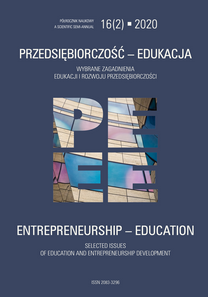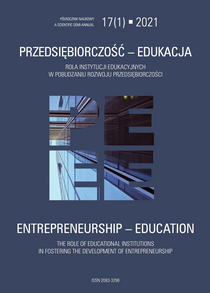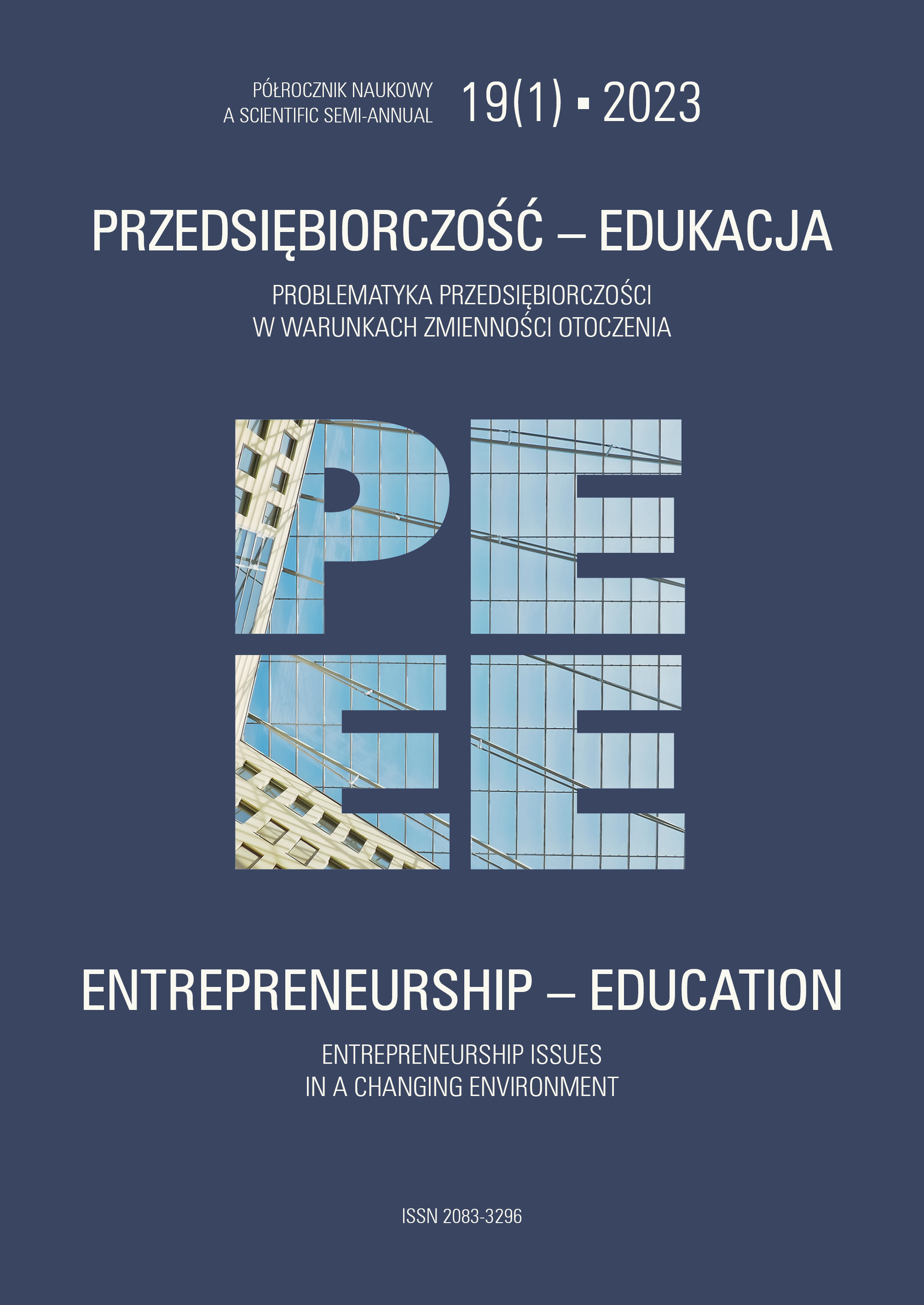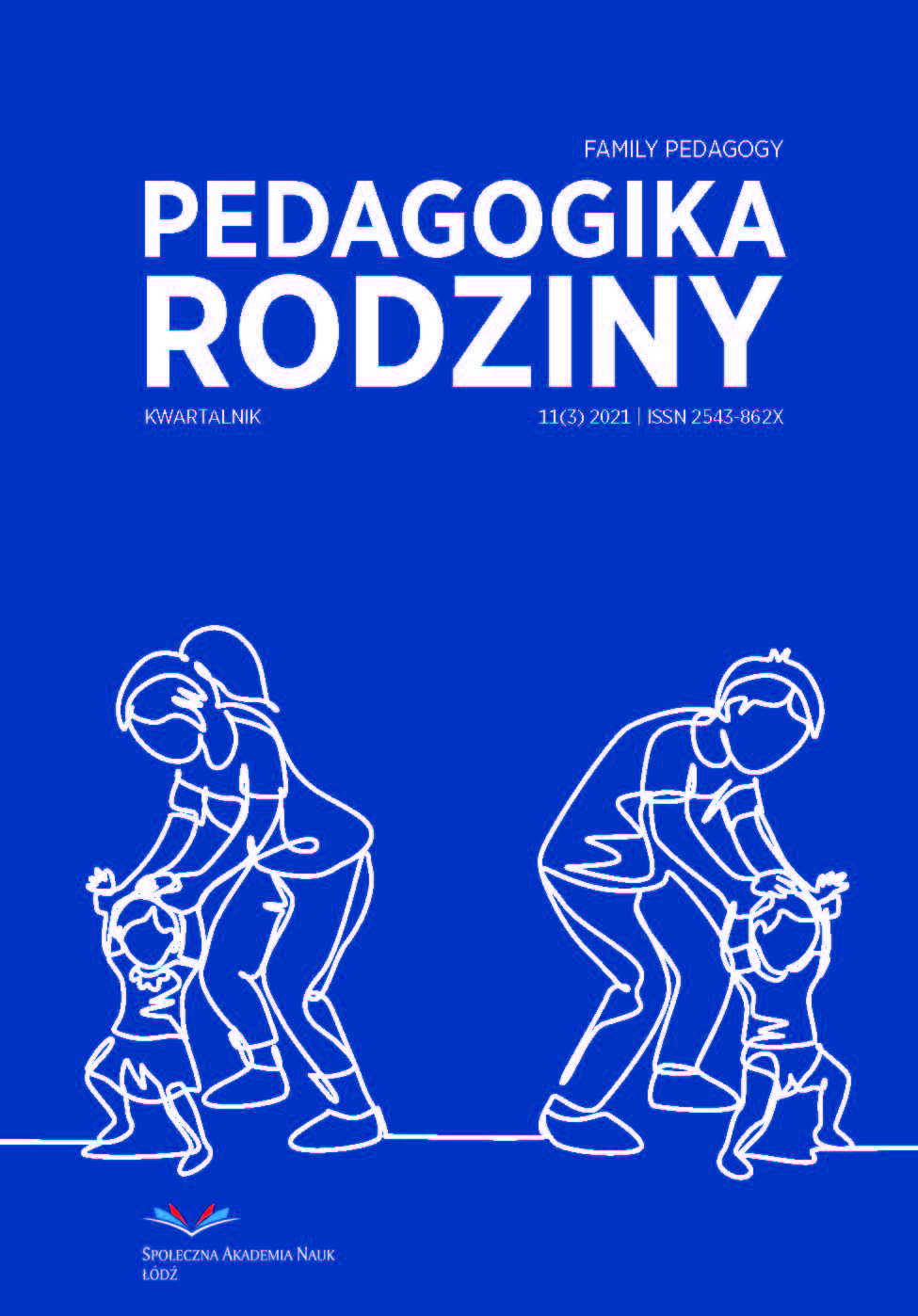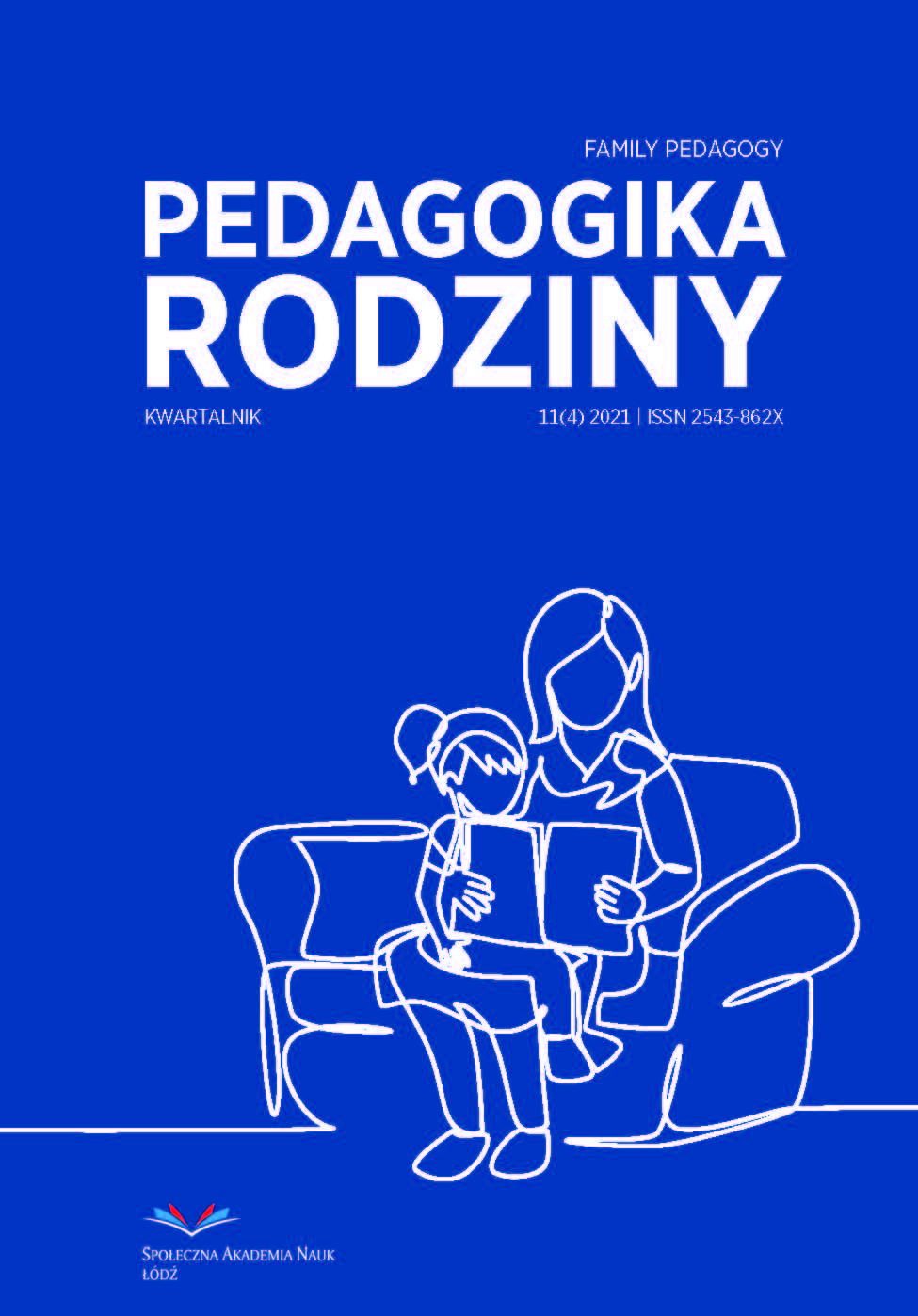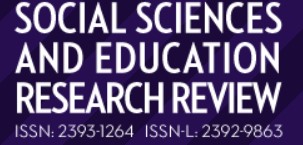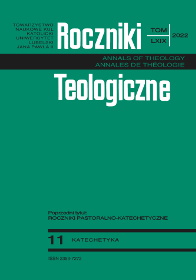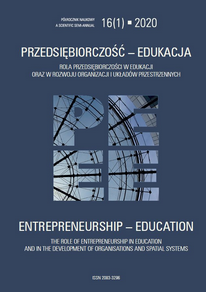
Academic Entrepreneurship in the Development Strategies of Polish Universities
This article addresses the issue of academic entrepreneurship, broadly understood as: (1) the process of establishing companies, (2) university entrepreneurship, (3) development of educational programs and entrepreneurial attitudes among students and academics, (4) creating institutions and programs that support setting up of companies, (5) intellectual property management and (6) entrepreneurial university management (Banerski et al., 2009). The goal is to examine the presence of academic entrepreneurship in the development strategies of eighteen Polish public universities. This study uses the content analysis method and is a part of strategic research. To answer the research question, the universities’ development strategies were analysed and in particular mission statements, strategic and operational goals, activities/tasks. Based on the research, it can be concluded that university authorities do not perceive academic entrepreneurship as a goal of the utmost importance and only to a small extent see the need to develop this concept by taking it into account in development strategies.
More...
